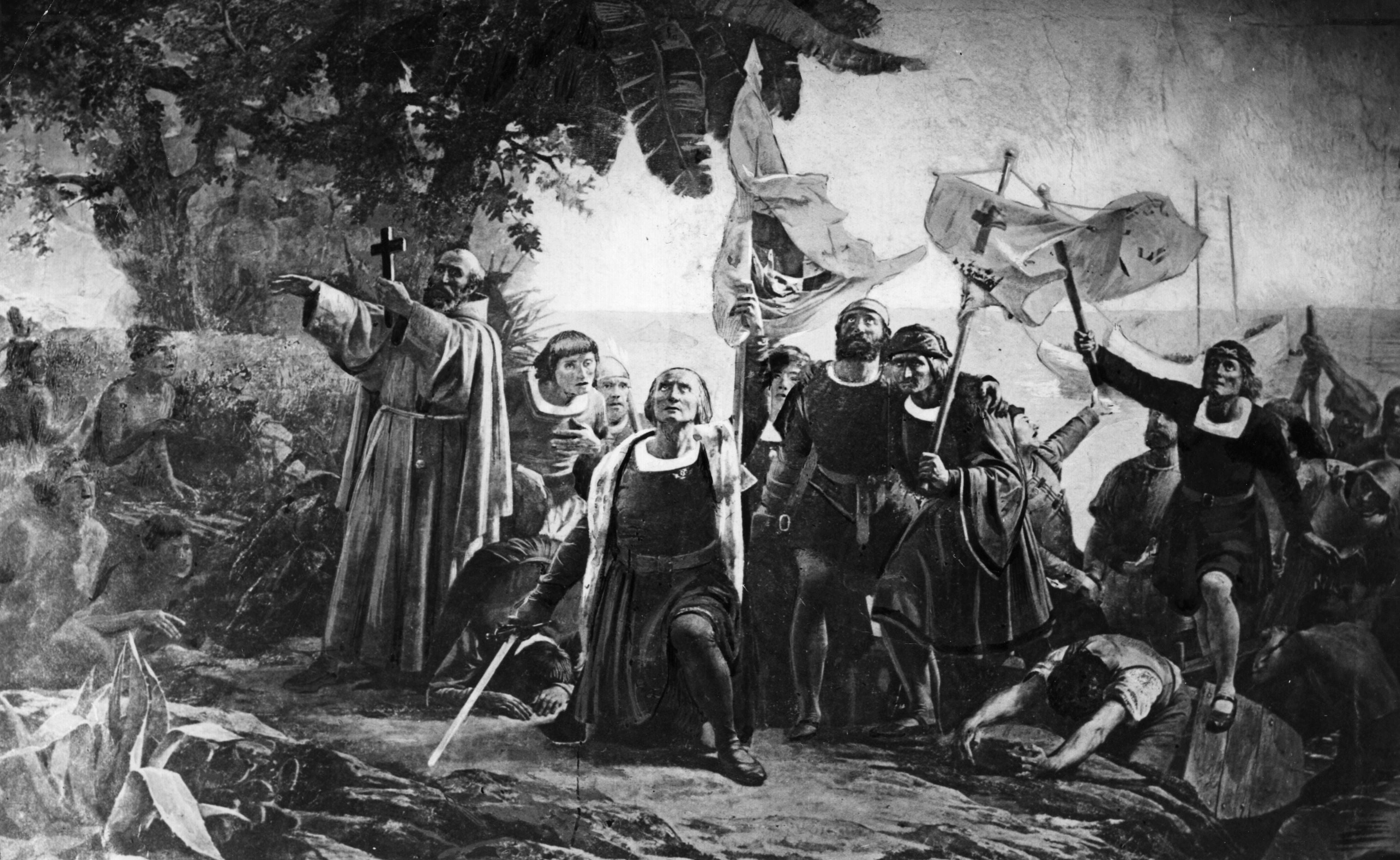Christopher Columbus was secretly Jewish, new DNA study reveals
The 15th-century explorer was a Sephardic Jew from western Europe, Spanish DNA experts reveal
Your support helps us to tell the story
From reproductive rights to climate change to Big Tech, The Independent is on the ground when the story is developing. Whether it's investigating the financials of Elon Musk's pro-Trump PAC or producing our latest documentary, 'The A Word', which shines a light on the American women fighting for reproductive rights, we know how important it is to parse out the facts from the messaging.
At such a critical moment in US history, we need reporters on the ground. Your donation allows us to keep sending journalists to speak to both sides of the story.
The Independent is trusted by Americans across the entire political spectrum. And unlike many other quality news outlets, we choose not to lock Americans out of our reporting and analysis with paywalls. We believe quality journalism should be available to everyone, paid for by those who can afford it.
Your support makes all the difference.A new DNA study on the 500-year-old remains of Christopher Columbus has found that the controversial explorer was actually a Sephardic Jew from western Europe.
Spanish researchers announced their findings in a new documentary, titled Columbus DNA: The true origin, which aired on Spain’s national broadcaster TVE. Since 2003, scientists have tested samples of remains buried at Seville Cathedral in Spain, believed to be the final resting place of the 15th-century explorer.
In the documentary, Jose Antonio Lorente, a professor of forensic medicine, who led the research at the University of Granada, said his analysis revealed that Columbus’s DNA was “compatible” with his being of Jewish origin.
Throughout the 21-year investigation, DNA experts compared samples of the remains with those of Columbus’s known relatives and descendants. “We have DNA from Christopher Columbus, very partial, but sufficient. We have DNA from Fernando Colon, his son,” Professor Lorente said, per CNN. “And both in the Y chromosome (male) and in the mitochondrial DNA (transmitted by the mother) of Fernando, there are traits compatible with Jewish origin.”
Columbus was previously believed to be an Italian from Genoa, born in 1451 to a family of wool weavers. Over the years, historians have suggested that the explorer could have been Greek, Basque, Portuguese, or British. While researchers were unable to pinpoint Columbus’s place of birth, they acknowledged after analysing 25 possible locations that he was likely to have come from the Spanish Mediterranean region.

“The DNA indicates that Christopher Columbus’s origin lay in the western Mediterranean,” Prof Lorente said. “If there weren’t Jews in Genoa in the 15th century, the likelihood that he was from there is minimal. Neither was there a big Jewish presence in the rest of the Italian peninsula, which makes things very tenuous.”
An estimated 300,000 Jews were living in Spain before the era of the “Reyes Catolicos”, during which Catholic monarchs King Ferdinand II and Queen Isabella ordered Jews and Muslims to convert to Christianity or face exile. The expulsion of Jews from Spain occurred in 1492, the same year that Columbus made his first voyage to the Americas.
Now, researchers believe Columbus either concealed his Jewish identity or converted to Catholicism to escape religious persecution. The term “Sephardic” is derived from Sepharad, a Hebrew word that refers to the Iberian peninsula, which includes modern-day Spain and Portugal.
As a result of the study, Prof Lorente also confirmed theories that the remains in Seville Cathedral belonged to Columbus. “The outcome is almost absolutely reliable,” he said.
Columbus died in the Spanish city of Valladolid in 1506. He had wished to be buried on Hispaniola, which is now divided into Haiti and the Dominican Republic. His remains were brought there in 1542 and were then moved to Cuba in 1795, and finally to Seville in 1898.
Sponsored by King Ferdinand and Queen Isabella, Columbus completed four voyages for Spain across the Atlantic Ocean. However, his conquests – and the subsequent genocide and colonisation of Indigenous people in the Americas – have been widely condemned. As a result, many states and cities in the United States have decided to rename Columbus Day, the holiday in honour of the explorer, to recognise the violence committed against Native Americans since Columbus and his crews arrived on shore.
